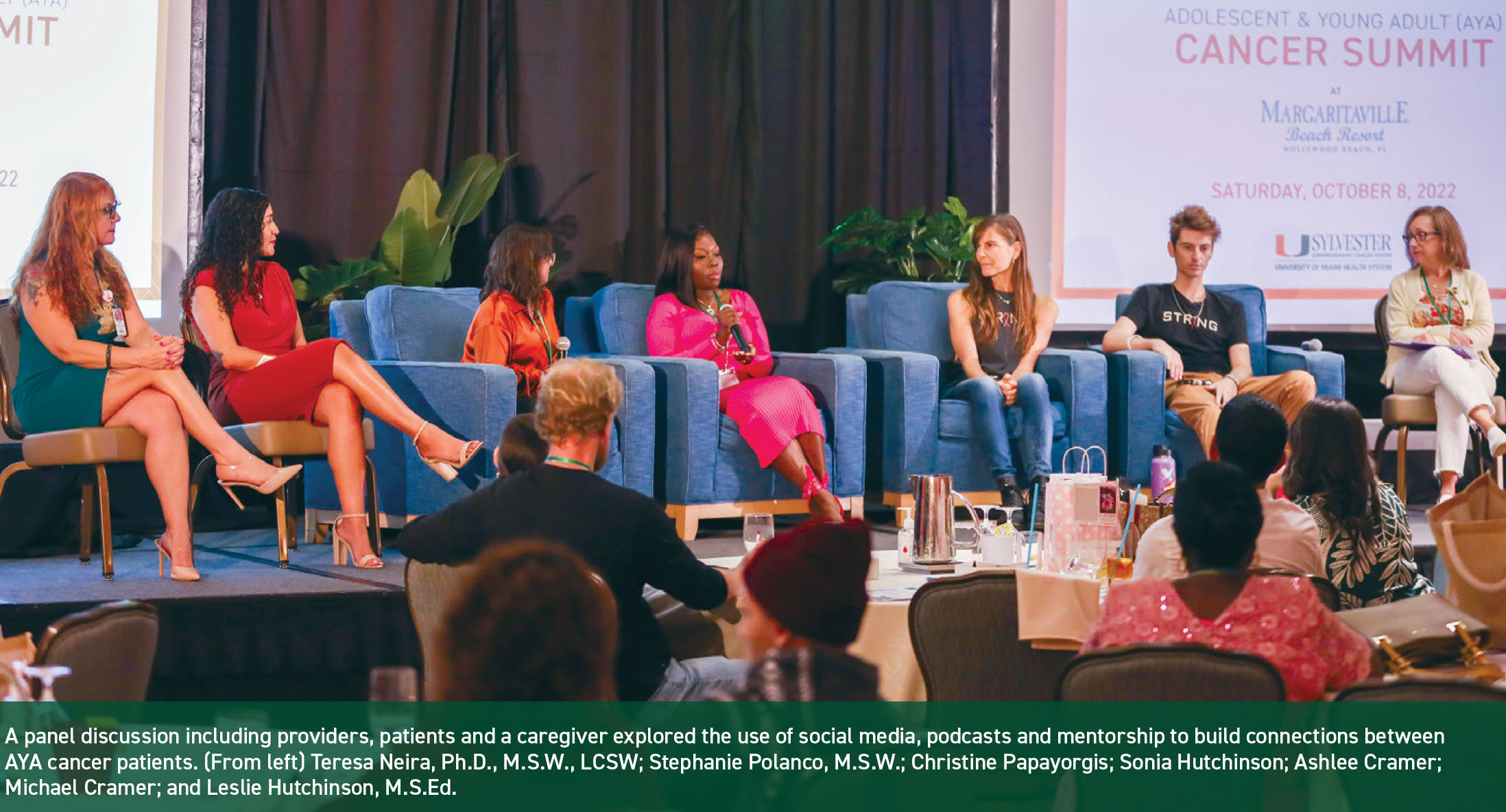
The event, geared to support adolescent and young adult cancer patients, addressed the unique challenges and needs during and after treatment
Sylvester Comprehensive Cancer Center at the University of Miami Miller School of Medicine recently brought together cancer survivors from 15 to 39 years old at the Adolescent and Young Adult (AYA) Cancer Summit in Hollywood Beach, Fla., Oct. 8, 2022.
“This was an opportunity for patients to get together, network among themselves, support each other, and share experiences,” said Julio C. Barredo, M.D., director of children’s cancer programs at Sylvester and professor of pediatrics, medicine, biochemistry and molecular biology at the Miller School.
“This particular group of patients has different needs from most other cancer patients,” Dr. Barredo said. For example, the younger group must not only deal with cancer treatment, but also with family, school and other relationships. For people in their 20s and 30s, financial issues are important because patients may or may not have assistance from their families or may lack health insurance. Being able to start families of their own after treatment is also a concern.
Sylvester is “uniquely positioned as an NCI-designated cancer center to treat patients through the different stages of their lives, from the first day of life to the last day of life,” Dr. Barredo said.
Among the topics presented, attendees learned about the challenges of reproductive health and fertility after treatment and the options available before, during and after treatment.
Sylvester social workers, who made several summit presentations, play a major role in assisting and supporting all cancer patients starting with their diagnosis, said Lisa Marie Merheb, M.S.W., LCSW, director of social services at Sylvester.
“This summit was geared to support our adolescent and young adult cancer patients,” Merheb said. “This age group has a unique set of challenges. Many expressed how isolating it is for them while undergoing cancer treatment, and many said to me, ‘This is just what I needed.’ Patients connected with each other, and continued to connect and share their stories even after the summit was over.”